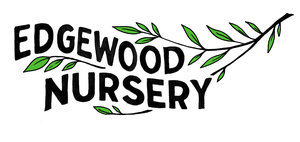Educational Services
We offer a wide variety of workshops and classes around the subjects of sustainable/regenerative agriculture, edible plants and cooking. Below is a list of classes that are already developed and ready to go. Custom offerings can be arranged to suit the needs of group. We enjoy teaching students of all ages and abilities. All classes can be modified to suit the age range and experience level of the students. Please be in touch to discuss scheduling and pricing.
Gardening for Habitat - This workshop will explore gardening and landscaping with a eye towards creating and maintaining habitat for local wildlife. Gardening for wildlife not only benefits other species, but is good for humans as well, as it is often low maintenance, low input and attracts birds and insects and are enjoyable to observe and interact with.
Seed Saving and Vegetable Breeding - Learn the art and craft of saving seeds from any plant. We will talk about plant genetics and hybridization, including how to keep the next generation the same, or create a new variety.
Propagating Plants - Learn to grow new plants from seeds, divisions, roots, cuttings and more. This can range from a one hour introduction to a few basic techniques, to a day-long intensive with many hands-on demos.
Introduction to Edible Landscaping - Any landscape can incorporate an abundance of edible plants. Learn about a selection of styles, techniques and plants to turn your surroundings into a edible oasis.
Perennial Vegetables for Maine - Perennial vegetables offer an array of benefits and flavors not found in annual veggies. This class covers the pros & cons of growing perennials, and introduces many species well suited to our local climate.
Cannabis for the Home Gardener - This beginner level class will serve as a introduction for people not familiar with Cannabis cultivation. We will focus on outdoor cultivation, from seed to harvest. Both medicinal/recreational and hemp (food/fiber) types will be covered. If you can grow a Tomato, you can grow Cannabis.
Tree Crops: Beyond the Apple - Tree crops can be amazing sources of nutrition, flavor and beauty in our surroundings. Uncommon tree varieties are among the most useful, interesting and easy-to-grow. Learn about a selection of species and their basic care and maintenance.
Making Yogurt at Home - Yogurt is easy to make at home. This versatile kitchen staple is an excellent source of protein, nutrients and beneficial bacteria. Enjoy a hands-on demo and sample a variety of home made yogurts and recipes.
Introduction to Low Maintenance, Low Input Gardening - We cover the essentials of starting, planting and maintaining a new garden. We discuss several techniques to help minimize the problems associated with organic gardening and keep it fun.
Companion Planting for the Home Orchard - Companion planting in your orchard can provide many benefits. Learn how a diversity of plants can help ease pest and disease pressure, enhance wildlife habitat, create a beautiful aesthetic and more!
Creating and Managing Beneficial Insect Habitat + Bee Nesting Blocks - In this class we will talk about planting, managing and creating for optimum beneficial insect habitat. We will cover what plant families and species are most helpful to plant, how to manage them for maximum habitat potential and wrap up by creating our own native bee nesting blocks and bundles, all from recycled materials!
Making Garden Signs from Reclaimed Materials - After years of (very) low key research and development I have figured out a garden sign that is durable, legible and is made (almost) entirely from material rescued from the waste stream. In the class I will show you how to make them and you will be able to make 10 to bring home.
Cannabis for the Home Gardener - This beginner level class will serve as a all in one introduction for people not familiar with Cannabis. We will cover the history and social context of Cannabis along with outdoor cultivation, harvesting, processing and best practices for use. Both medicinal/recreational and hemp (food/fiber) types will be covered.
Introduction to Food Forest Design - A food forest is a way of laying out a landscape to mimic a natural forest, providing food and other human needs with a minimum amount external inputs and maximum benefits to wildlife and the greater environment. This workshop will introduce the concepts of ecological niches, analogs, and resource partitioning so you can design your own home scale food forest. To help you implement your design we will also cover best practices for starting a food forest and recommended species to plant.
Rethinking Psychoactive Plant Medicines - Human's relationship with psychoactive plants (and fungi) reaches back far into our collective pre-history. For some cultures this is a unbroken lineage, however for most people of European origin this is not the case. In this class we will discuss the history and social context of psychoactive plants in general, then move on to the history, chemistry and botany of specific species. We will end with a look towards the future, how can we repair our profoundly damaged relationship with these plants?
Top-Working the Commons - Tree and shrub crops are getting some well deserved attention for their climate resilience, low inputs and diverse ecological services.
Unfortunately many people who would otherwise be interested in cultivating trees are unable to because of lack of long term access to land or
the economic necessity of moving around the country. This workshop will discuss several strategies to bring tree crops into cultivation on public
lands, where they can be grown for the benefit of people and planet.Introduction to Living Soil - Soil is a complex matrix of broken up rocks, gases, water, living and non-living organic material. It is the foundation of life on the land of Earth. It's mistreatment is one of humanity's greatest problems and in soil lies some of our greatest hope for the future. This workshop introduction the ideas of soil structure, soil chemistry and the soil food web.

